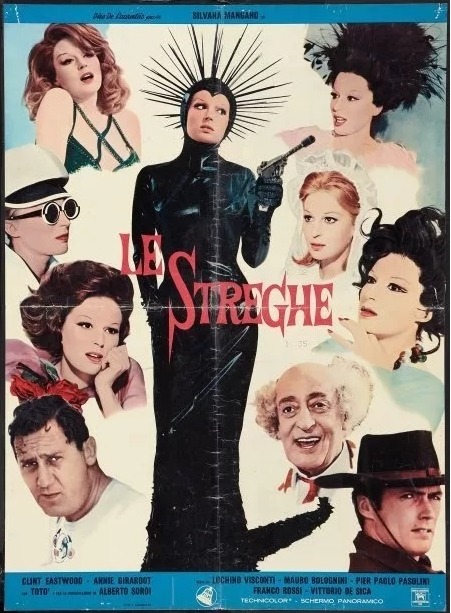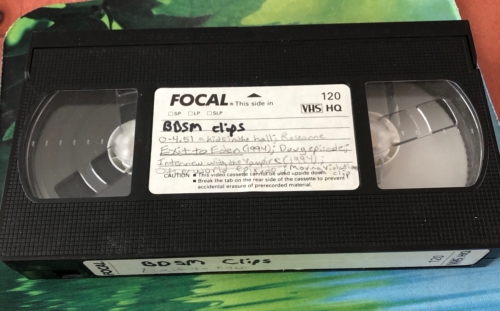Le Streghe (The Witches) is a 1967 Italian comedy anthology film. Each segment had a different director, and they all starred Silvana Mangano.
Continue reading »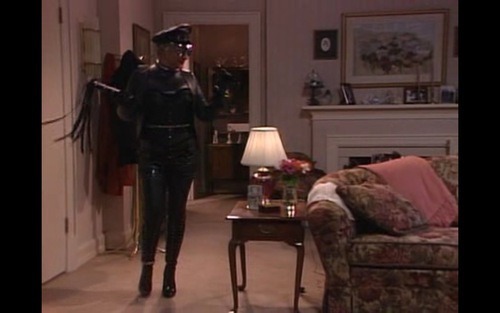
Aired May 10, 1994
Roseanne was a popular sitcom in the 1990s, built around the stand up comedy of Roseanne Barr.
Roseanne’s elderly mother suffers a minor hip injury and has to move into her daughter’s house to recover, causing friction with Roseanne and her family. Bev’s friend Jake from the retirement home drops by and reveals that Bev injured herself during sex with him. Roseanne struggles with talking about sexual topics with her mother, and Bev is equally uncomfortable, after a lifetime of sexual ignorance and bad experiences. Roseanne and Bev awkwardly talk it out.
Continue reading »Fifty Shades of Black (2016) (IMDB) is a comedy/romance film directed by Michael Tiddes and written by Marlon Wayans and Rick Alvarez. Obviously, it’s a parody of the wildly popular Fifty Shades of Grey franchise.
Beyond just parodying Fifty Shades, Black derives comedy from juxtaposing sadomasochism, long seen as a “white thing”, with blackness.
Moon Charania’s essay “The Promise of Whiteness: Fifty Shades of Grey as White Racial Archive” in Intensities: The Journal of Cult Media (Issue 8, January 2016) hypothesizes that the book and film’s story can only work because the two leads are extremely white and heterosexual. It presents a kind of hetero-white utopia in which all the cultural anxieties of the 2000s and 2010s are almost entirely absent. Almost no non-white people means no racial violence and inequality, and almost no queer and no trans people means no challenge to the primacy of heterosexuality.
The significance of Grey’s emotional torment, Ana’s romantic attachment to Grey, and the familiarity of white heterosexual domestic love render this (attempted) violent domination both palatable and melancholic. [Pg. 84]
To excite and placate the audience, Ana and Christian as lovers and antagonists could only be white. The sudden excitement found in a powerful white man beating an empowered white woman for sexual pleasure establishes an inextricable link between racial formation and sexual subjectification. [Pg. 85]
In Charania’s view, whiteness excuses everything: Christian’s domination and sadism, Ana’s infatuation and naivete. Remove Christian’s whiteness, his wealth and privilege, from the narrative, and he’s just an abuser. Remove Ana’s whiteness, and she’s just a helpless victim. It’s not a love story anymore.
So what happens if the analogs of Christian Grey and Anastasia Steele, “Christian Black” (Marlon Wayans) and “Hannah Steale” (Kali Hawk), are black?
Continue reading »Growing Up Femdom: Mass Media Reflections I
By TammyJo Eckhart, PhD
When I was a little girl, I was already dominant leaning. TV shows, books, movies, and even the stories I made up, that were girl-led, woman-led, or populated by Amazon-like societies, were filtered by my mind, so I only remember what strongly appealed to me. Today I’m a published kink author who has a PhD minor in the History of Gender and Sexuality. I know that I will still filter what I see and hear through a personal lens, but I have the tools to try to be objective. I’m glad that I’m finally able to write about some of the mainstream images of kink I remember liking when I first encountered them. I’m going to talk about some of the TV shows, TV clips, and TV movies from the tape you see a photo of, though this is an artificial limit for this post and not even close to everything I could write about. It has been over two decades since I last recorded on this tape. Do I think these are still examples of woman-led relationships, or do they play into stereotypes that harm women, relationships, and kink in general?
Continue reading »Sex and the City S02E12, “La Douleur Exquise!”, aired August 22nd, 1999 IMDB Title translates to “the exquisite pain”
Sex and the City was a popular dramedy series about single women in New York City around the turn of the millennium.
The opening narration of this episode makes it clear that BDSM is just another aesthetic to be adopted, consumed, and abandoned, befitting the series’ consumerist ethos.
Carrie (vo) “New York City restaurants are always looking for the next new angle to grab that elusive and somewhat jaded Manhattan palate. Last year it was fusion Cajun. Last month it was mussels from Brussels. And tonight, it’s S&M.”

Eurotrip is a 2004 teen comedy.
Eurotrip is a very parochial movie, with the American teens treating Europe as if it is a terrifying land of threatening depravity. The plot itself is premised on heterosexual gay panic: the protagonist doesn’t realize that he has become email pals with a German girl and thinks a man is propositioning him. When he realizes his mistake, he goes on a trip with some friends across Europe to find his love and make amends.
Much of the comedy is the characters attempting and failing to enjoy European pleasures supposedly forbidden in puritanical America. (Two of the “vices”, cannabis and absinthe, are now mostly legal in the USA.)
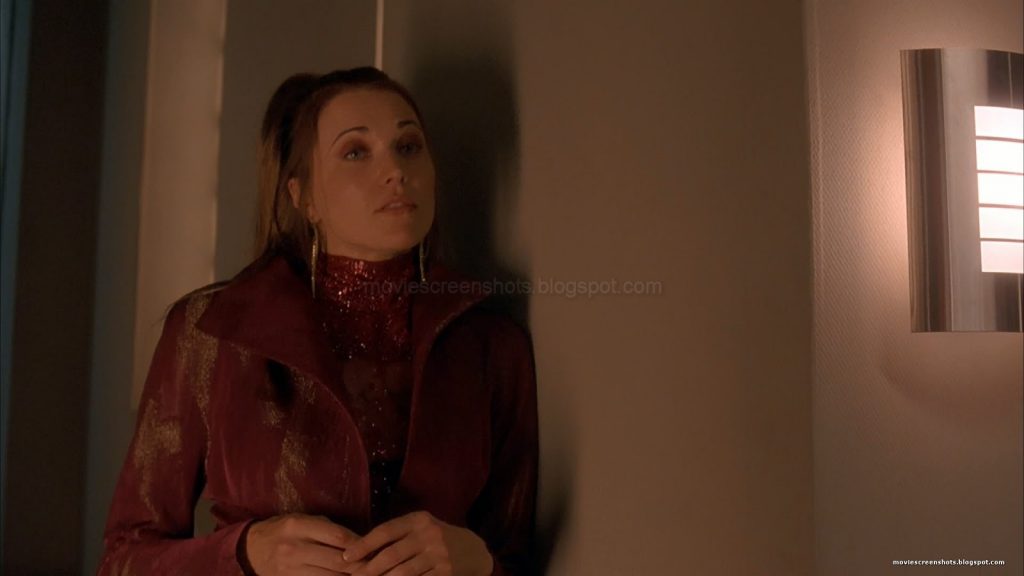
Family Guy, episode S02E14 “Let’s go to the hop”, aired June 6, 2000. IMDB
This is the episode of Family Guy with the infamous “your safeword is banana” scene.
The town of Quahog goes into a moral panic about teenagers licking psychedelic toads. Lois and Peter discover a toad in the laundry, and their daughter Meg confesses to holding it to curry favor with the popular kids.
That night in their bedroom, Peter and Lois talk about their fears regarding their kids while putting on fetish wear. Peter says he will talk to the school principal.
Peter’s “plan” is to infiltrate the school as a student, “Lando Griffin.” He solves the toad-licking problem with a musical number, and blunders into becoming the most popular guy in school. Most of the rest of the episode is Peter’s conflict between chasing highschool popularity and looking after Meg. The real underlying problem is the highschool social hierarchy, and the toads are just a symptom.
Perhaps inadvertently, Family Guy provided one of the most non-judgmental depictions of BDSM in mainstream media. Peter and Lois’ conversation about their kids and drugs is played straight. It’s the kind of thing a married couple with teenagers would talk about while getting ready for a scene. It’s just something they do together for fun.
You could interpret this scene to say that Peter and Lois are hypocrites for their panic over drugs while they indulge in kink, but that only works if you view kink as a problem. Showing them smoking a joint together would be a more pointed critique, but might not be allowed on television.
Tomcats is a 2001 sex comedy.
Tomcats is a catalog of white heterosexual male anxieties at the turn of the millennium: castration, marriage, children, public humiliation, romantic and sexual rejection, unruly female bodies, being outperformed by women professionally, women turning into lesbians, and women who are too sexual. For the purposes of this project, the relevant scene has the same comedic premise as in Eurotrip: that even the horniest man can be overwhelmed by the most voracious woman.
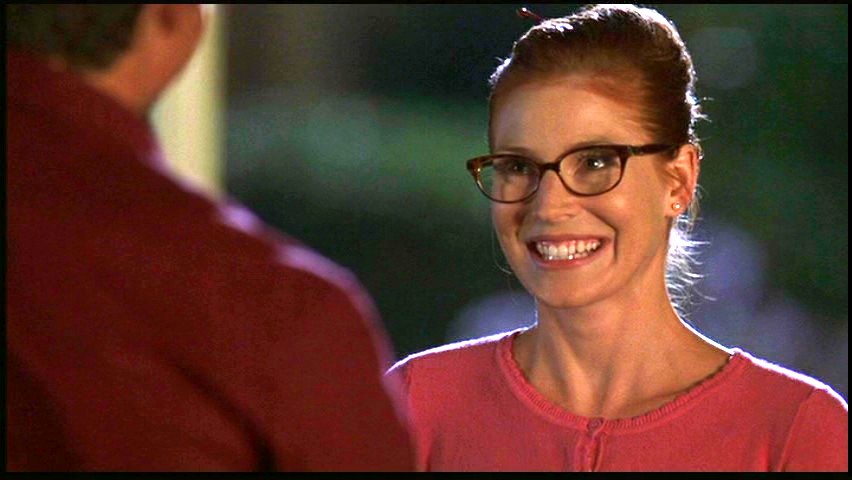
The premise is that a group of male friends made a bet that whoever is the last unmarried gets all the money in a large mutual fund. Our protagonist, Michael (Jerry O’Connell), tries to impress a woman at a Vegas casino, ends up owing $50,000, and has to get his womanizing single friend, Kyle (Jake Busey) married by the end of the month so he gets the money.
Michael finds Natalie (Shannon Elizabeth), the one who got away for Kyle, who turns out to be a police detective. They set about seducing Kyle, while our protagonist starts falling for the woman. Natalie tells Michael that she’s falling for Kyle, prompting Michael to seduce the first woman he sees, which goes spectacularly awry.
Live Nude Girls is a 1995 comedy-drama film, about a group of women who gather for a bachelorette party and mostly talk about sex.
The film starts with women as tween girls having a slumber party in a tent with a poster of David Cassidy, the dawning of their sexuality. In the present, the women mostly talk about their early experiences in the 70s, like reading page 26 of The Godfather, or sneaking peeks at their fathers’ copies of Playboy. Some of these are acted out in fantasy sequences. These women have a complex tangle of desire, vanity, anxiety and shame in their past and present sexual lives.
Desperate Housewives was a mystery/dramedy TV series concerning a group of four housewives in a suburban neighborhood who attempt to solve the mystery of the death of one of their friends. They also deal with various other challenges to their families.
One of the four wives, Bree (played by Marcia Cross), learns that her husband Rex (played by Steven Culp) has been cheating on her with another married woman, Maisy Gibbons (played by Sharon Lawrence), who is a sex worker and dominatrix. Maisy took this up for money when her husband lost his job.
Continue reading »